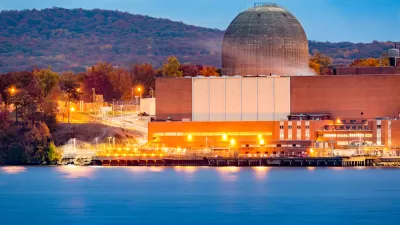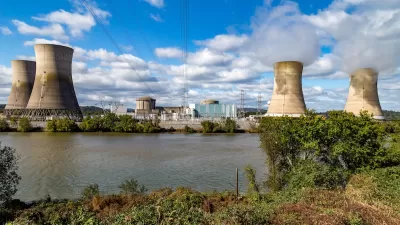An MIT professor testified before Congress for a broad policy to address energy and climate crises - including carbon pricing, carbon sequestration, expanded fossil fuel and nuclear production, and more research spending.
"First, he said, charging for greenhouse gas emissions is essential, whether in the form of a direct carbon tax or a cap-and-trade system. Second, a major 10-year program to demonstrate carbon sequestration is essential to make clean coal a reality. Third, a push is needed to improve the efficiency of energy use in buildings, cars, and appliances.
Fourth, much more research is needed on potential energy solutions. This requires at least a doubling of federal research funding...Fifth, there should be an expansion of domestic oil and gas production, which he said is important to add credibility to US efforts to encourage other nations to increase their production. Sixth, commercial nuclear power should be expanded, although this requires addressing issues of cost, waste management, and nuclear weapons proliferation."
"After a question and answer period during which each of the 20 senators on the committee expressed their views, Deutch said "I'm impressed that all of you are saying that we need to do 'all of the above'" -- Given that support, he then asked, why isn't it happening?"
Thanks to Blossom Hoag
FULL STORY: On Capitol Hill, Deutch stresses all-out energy approach

Alabama: Trump Terminates Settlements for Black Communities Harmed By Raw Sewage
Trump deemed the landmark civil rights agreement “illegal DEI and environmental justice policy.”

Planetizen Federal Action Tracker
A weekly monitor of how Trump’s orders and actions are impacting planners and planning in America.

How Atlanta Built 7,000 Housing Units in 3 Years
The city’s comprehensive, neighborhood-focused housing strategy focuses on identifying properties and land that can be repurposed for housing and encouraging development in underserved neighborhoods.

In Both Crashes and Crime, Public Transportation is Far Safer than Driving
Contrary to popular assumptions, public transportation has far lower crash and crime rates than automobile travel. For safer communities, improve and encourage transit travel.

Report: Zoning Reforms Should Complement Nashville’s Ambitious Transit Plan
Without reform, restrictive zoning codes will limit the impact of the city’s planned transit expansion and could exclude some of the residents who depend on transit the most.

Judge Orders Release of Frozen IRA, IIJA Funding
The decision is a victory for environmental groups who charged that freezing funds for critical infrastructure and disaster response programs caused “real and irreparable harm” to communities.
Urban Design for Planners 1: Software Tools
This six-course series explores essential urban design concepts using open source software and equips planners with the tools they need to participate fully in the urban design process.
Planning for Universal Design
Learn the tools for implementing Universal Design in planning regulations.
Caltrans
Smith Gee Studio
Institute for Housing and Urban Development Studies (IHS)
City of Grandview
Harvard GSD Executive Education
Toledo-Lucas County Plan Commissions
Salt Lake City
NYU Wagner Graduate School of Public Service




























